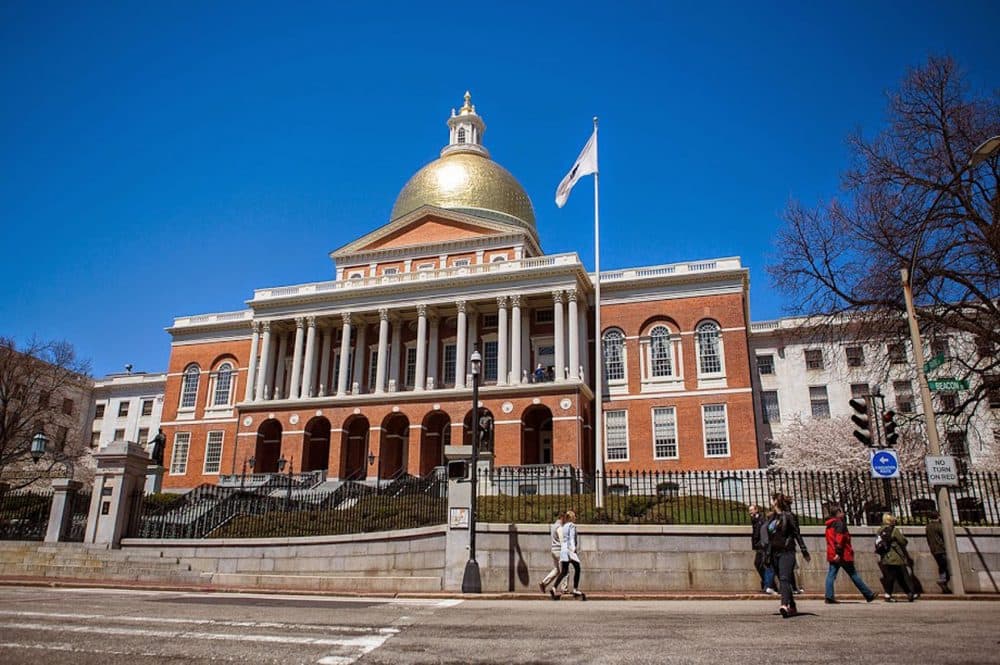Advertisement
147-8: Mass. House Overwhelmingly Votes To Ban Conversion Therapy For Minors

The Massachusetts House overwhelmingly passed a bill Wednesday to ban the practice of conversion therapy for minors, renewing an effort that lawmakers failed to complete last summer.
By a vote of 147-8, the House approved legislation (H 140) that prevents state-licensed therapists from attempting to change a minor's sexual orientation or gender identity. Proponents argued the practice, which has been outlawed in 14 other states and in the District of Columbia, is abusive and has been scientifically debunked.
"Ultimately, we all know this bill will ensure that children receive therapy in a healthy, evidence-based and medically sound manner, not one which fosters an atmosphere of self-hate, prejudice and intolerance," Rep. Kay Khan, who authored the legislation, said before the vote. "Massachusetts has always been a trailblazer in advancing civil rights and eliminating discrimination in health care settings for the LGBTQ community. This bill is a necessary extension of these historic commitments."
The House and Senate passed a similar bill in 2018 but could not get it to Gov. Charlie Baker's desk before formal lawmaking session ended. Baker said this year he's "inclined to support" the bill, which is expected to clear the state Senate.
Seven of the House's 32 Republicans — Reps. Donald Berthiaume, David DeCoste, Shawn Dooley, Peter Durant, Marc Lombardo, Joseph McKenna, and Michael Soter — opposed the bill in an initial vote. Later, the House reconsidered its vote and took a second recorded vote on the bill, which was again approved 147-8, but with independent Susannah Whipps of Athol voting for the bill after being recorded against it on the initial vote and Rep. Nicholas Boldyga (R-Southwick) voting against the bill after initially voting for it.
Republican Rep. Randy Hunt voted present on both votes.
Lombardo and Dooley offered amendments to the bill to exempt talk therapy from the ban and to extend restrictions to unlicensed practitioners. The House ruled the amendments were beyond the scope of the bill because they were based on a Dooley version of the legislation (H 110) that was not released by the Joint Committee on Children, Families and Persons with Disabilities for a full House vote.
"The reality is we are legislating what can be said between a doctor and his patient in the sanctity of that relationship," Dooley said on the floor. "Let's say an 8-year-old boy comes in and says, 'I'm an 8-year-old girl.' Maybe that therapist — and many therapists I've spoken to have brought this up — wants to push back a little bit. Maybe that child isn't transgender, maybe that child's gay, maybe that child's bi. Why not give every opportunity for that therapist to explore that? Why can't the therapist say, 'No, you're not?'"
Khan, who chairs the Joint Committee on Children, Families and Persons with Disabilities, said the legislation protects youth while upholding First Amendment free-speech rights and that similar bills have been upheld as constitutional in appeals courts.
Other representatives, some of them openly gay, condemned the practice of conversion therapy, on multiple occasions calling it a "barbaric practice" that forces a population already prone to greater risks of depression to doubt their identities. Khan's office pointed to a 2018 study that found LGBTQ youth who underwent conversion therapy had twice the rate of attempted suicide of similar individuals who did not face the practice.
"Health care providers have a fiduciary duty to do no harm to their clients," said Rep. Sarah Peake, who recounted the fear she felt coming out as a lesbian to her parents. "Don't be mistaken: conversion therapy does harm to their clients. Conversion therapy harms their clients through shaming, through increasing self-loathing, through bringing to the foreground feelings of self-hatred, inadequacy, and the horrible feeling for any kid: the feeling of being other."
If the Senate approves the bill and Baker signs it into law, Massachusetts will join every other state in New England other than Maine in having a legal ban on conversion therapy for minors.
Mental health groups and LGBTQ advocates immediately praised the House's vote Wednesday afternoon.
Marty Rouse, national field director for the Human Rights Campaign, noted in a campaign that a wide range of medical and psychological professional organizations have denounced conversion therapy.
"We should call this practice what it is: child abuse," Rouse said in the release. "No child should have to endure such a painful and life-threatening experience, and we applaud the Massachusetts House of Representatives for taking such decisive action to protect LGBTQ youth."
Massachusetts Gay and Lesbian Political Caucus co-chair Arline Isaacson said she was struck by the huge majority support the bill secured in the House, calling it a "huge victory."
"Years ago on LGBT issues, we would struggle to get just 50 percent of the votes that we needed to pass legislation," Isaacson said. "Now, legislators have come to realize that conversion therapy is a significantly bad, harmful treatment for young people."
This article was originally published on March 13, 2019.